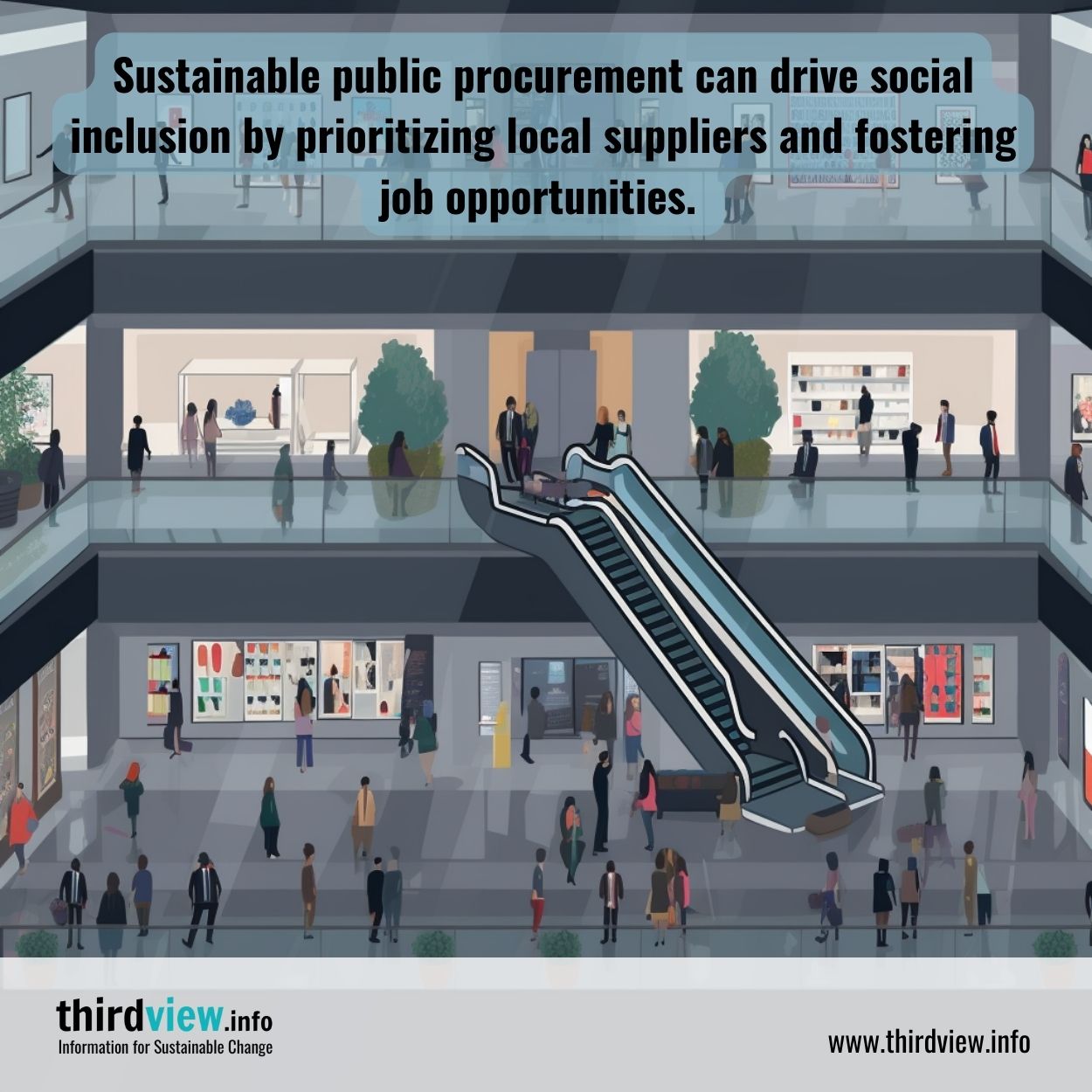Public procurement is the process that government agencies and other public entities use to purchase goods, services, or infrastructure. When this process is carried out in a manner that complies with environmental, societal, and economic objectives, it’s called sustainable public procurement (SPP). Apart from its essential aim of ensuring that public procurement isn’t harmful to the environment, SPP is also an important tool for promoting social inclusion. This blog post explores how sustainable public procurement can help to advance social inclusion, and how public organizations can adopt these practices.
Firstly, sustainable public procurement can promote social inclusion by prioritizing the use of local suppliers. When government agencies and other public entities procure goods and services from local suppliers, it fosters the spread of local trade and commerce. This, in turn, generates more job opportunities and leads to the creation of more sustainable local communities. Inclusivity in procurement also allows small firms, women-owned businesses and other historically disenfranchised groups to participate in public marketplaces. It paves the way for resilience, improves economic interdependence and promotes societal development.
Secondly, Supplier Diversity Programs (SDP) can help to promote social inclusion. SDP is a policy adopted by some public organizations that aim to improve the participation of minority groups, such as women and people of colour, in public procurement. By setting targets to award government contracts to disadvantaged suppliers, SDP helps to create equal opportunities for suppliers, reversing business exclusion by taking a proactive stance towards inclusion. SDP offers innovation, flexible pricing, and superior results due to supplier competition.
Thirdly, SPP offers opportunities to select suppliers that reflect the values, missions and goals of the organization. Social Enterprise certification or adherence allows organizations to validate the smoothness of their supply chain by choosing suppliers that share their ethical values. Additionally, it promotes fair wage practices, environmentally conscious production, and community social responsibility. By making procurement decisions based on these criteria, organizations can contribute to the development of communities and marginalized groups that have been left out by traditional markets.
Fourthly, sustainable public procurement helps to promote social inclusion by reducing environmental and health inequalities. Public procurement decision-makers must consider the wider social and environmental impacts of their decisions. This involves considerations such as the extent of air pollution, workforce safety and hazardous waste treatment, among others. Reducing health-related risks has a direct impact on marginalized groups that tend to be more exposed to environmentally hazardous conditions because of their living conditions. Through the evaluation of the environmental, social, and economic impacts of public trade and commerce, public organizations can make more sustainable and inclusive decisions.
Finally, sustainability in public procurement contributes to a more resilient economy that safeguards the welfare of all people, particularly those who have been marginalized. It often leads to shared job opportunities and an affordable sustainable local marketplace. By prioritizing these processes and adopting more inclusive procurement strategies, organizations can promote sustainable public procurement and social development, contributing towards an ethical and equitable society.
In conclusion, Sustainable Public Procurement (SPP) is an excellent strategy for promoting social inclusion in government trade and commerce dealings. By prioritizing local suppliers, creating Supplier Diversity Programs, and adopting Sustainable and Ethical procurement standards, government agencies and other public entities can include marginalized groups and businesses in procurement decisions. At the same time, reducing environmental inequalities and promoting social responsibility contribute to a healthier, more resilient economy that will last for future generations. The adoption of sustainable public procurement practices can meet triple bottom-line standards of maximum social benefit.


